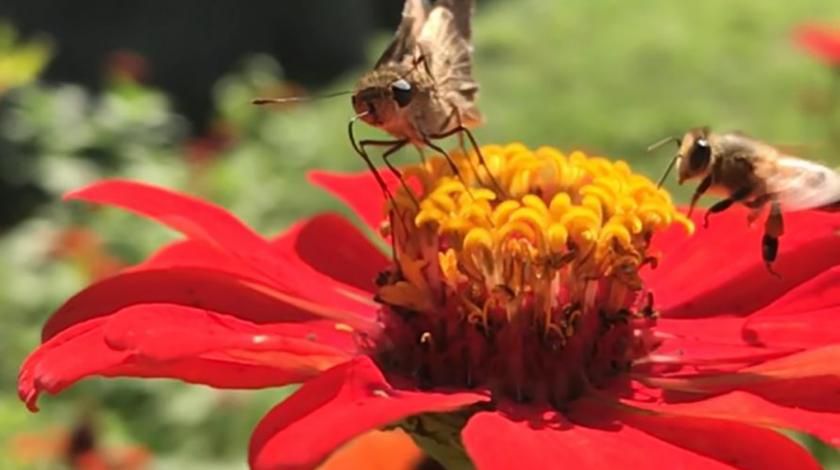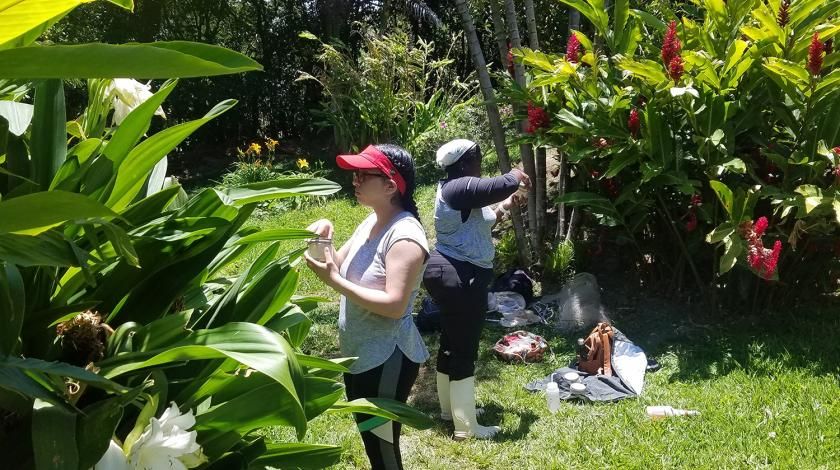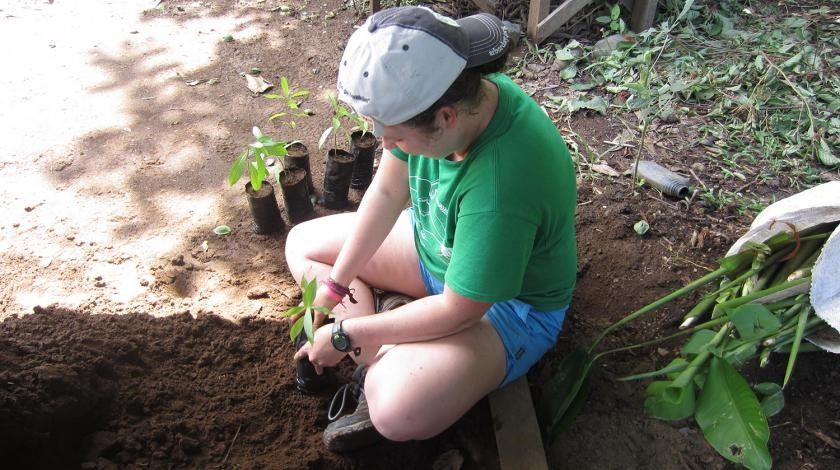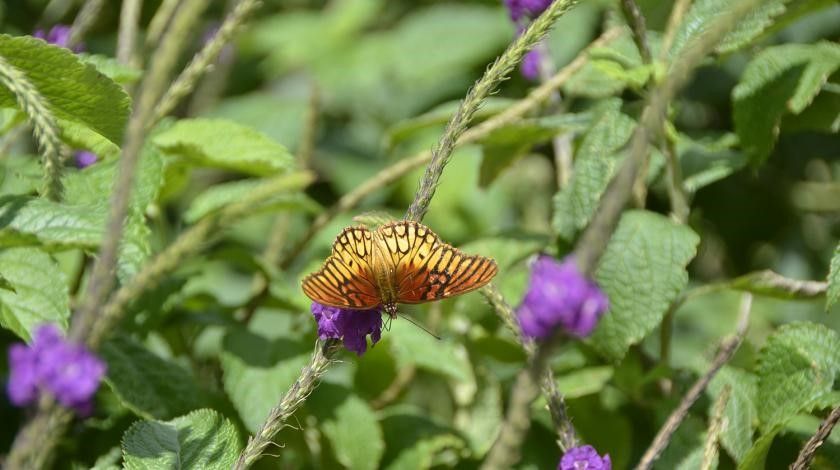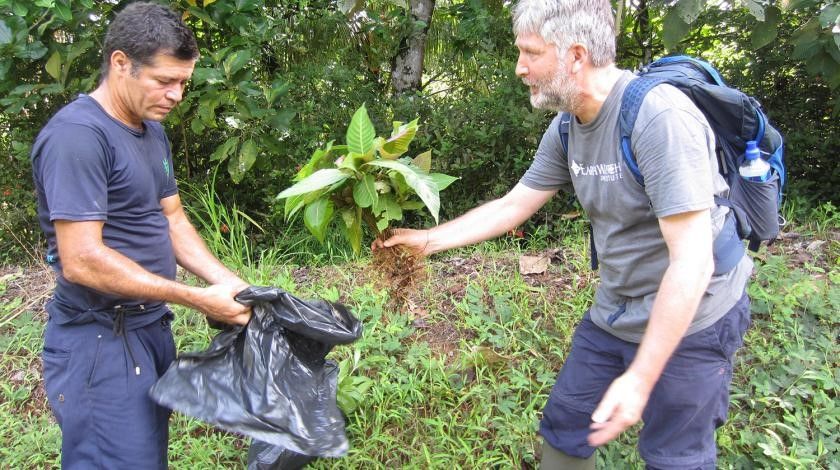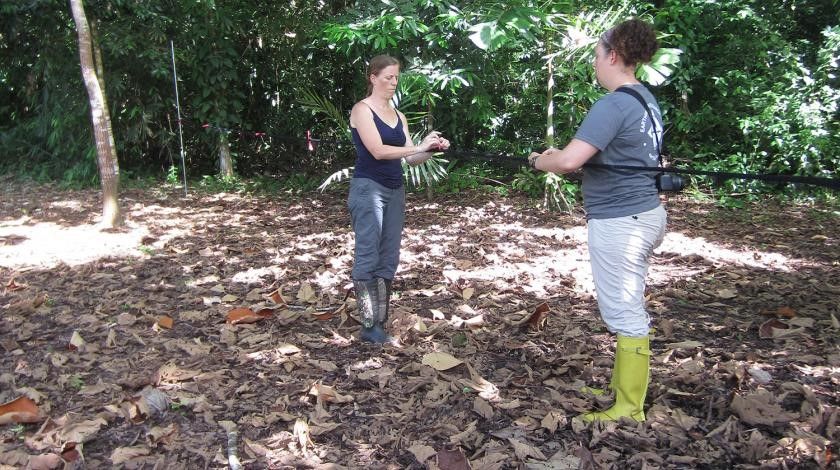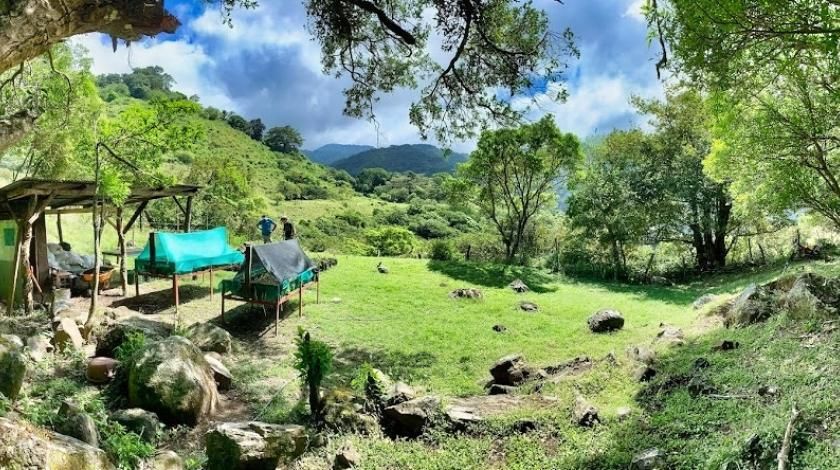Conserving Wild Bees and Other Pollinators of Costa Rica
Costa Rica is home to over 400 species of native wild bees and about 50 species of hummingbirds. But habitat loss, pesticide use, and climate change threaten the health and survival of pollinators around the world. How can we better protect these important species?
More than three-quarters of the world’s crops depend on pollinators such as bees, butterflies, and hummingbirds. These animals provide essential ecosystem services and play a crucial role in the production of many fruits and vegetables. But, a changing climate, pesticide use, and habitat loss or degradation threaten pollinator communities, although the full impact of these threats is not well understood. For example, warming temperatures could force pollinator species to shift their ranges to higher elevations, which could impact agricultural production, or it could be that a changing climate will cause these species to disappear altogether.
One way to mitigate the effects of climate change is by planting “agroforests”—or forests that grow in pastures around or among crops—that could benefit pollinator communities. As part of this expedition, you will meet local farmers and learn about their farms and farming techniques. Additionally, you will help set up experimental biodiversity islands within pasture areas, which could not only help pollinator communities but could also demonstrate to farmers how planting additional plant species can simultaneously protect biodiversity and ecosystem function as well as provide livelihoods for low-income families in the region.
In the rugged tropical forests of the Monteverde Cloud Forest Reserve or the lower elevation site of Guacima, home to one of the world’s most endangered ecosystems, the tropical dry forest, you will join the research team to investigate how threats to bees and butterflies will affect the critical pollination services they provide.
For more information or to book contact our office (03) 9016 7590 or email
Nerys Nicholls | APRIL 7, 2019 ★★★★★
"Fascinating, Informative, and A Real Eye-Opener"
Before I arrived in Monteverde, I had no idea that bees didn't just come in black and yellow stripes. Since I left the team, I now know so much more about our winged friends and can't walk past a bush without taking a look at the visitors within its foliage. Valerie and Chelsea were great team leaders, providing practical know-how for us to take on the research tasks and also delivering engaging and interesting theories behind the project and the relevant science. The campus setting was stunning, with great accommodation and facilities.
Rebecca Turner | JANUARY 21, 2019 ★★★★★
"Rural Relaxation"
This trip allowed me to support basic research and interact with Costa Rican farmers in a spectacular area. Every day brought another unbelievable view. I was able to experience the cloud forest at Monteverde on a day off, and it was thrilling to see all the birds with the help of Oscar, the super-naturalist!
Cynthia Moulton | DECEMBER 9, 2018 ★★★★★
"Pollinators in paradise!"
Valerie and her team were exceptional - I learned so much. The research was really well organized, it was in a truly beautiful setting and I loved that we had educational activities about the local region as well. There was just enough rigor and relaxation time!
David Bedell | SEPTEMBER 13, 2017 ★★★★
"Costa Rican Adventure"
It is easy to join a tour and go visit Costa Rica. However, it's far more difficult for most people to visit remote areas of this country and see how the average Costa Rican lives. This project, which is situated in a rural, mountainous area below the famous Monte Verde cloud forest, provides the opportunity to do important research on insect pollination in an area primarily populated by small farm families. Some of the days were quite rigorous and it can be difficult to sleep in when the howler monkeys are doing their thing and the coatis and agoutis are on the prowl outside your room, but the experiences are unforgettable. Eating locally produced food and living on the Univ. of Georgia research campus among the college students is pretty cushy compared to most accommodations on EW projects I have been on. Hiking uphill in hot, humid weather is not for everyone, but allowances were made for people who couldn't make the hikes, and everyone was able to contribute to the research.
-
 Activity Level: Moderate
Activity Level: Moderate -
 Location: San Luis de Monteverde, Costa Rica
Location: San Luis de Monteverde, Costa Rica -
 Lead Scientist:
Lead Scientist:


